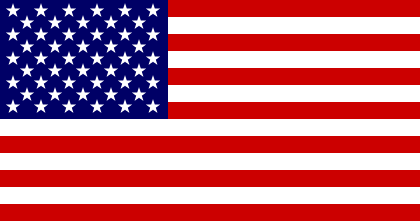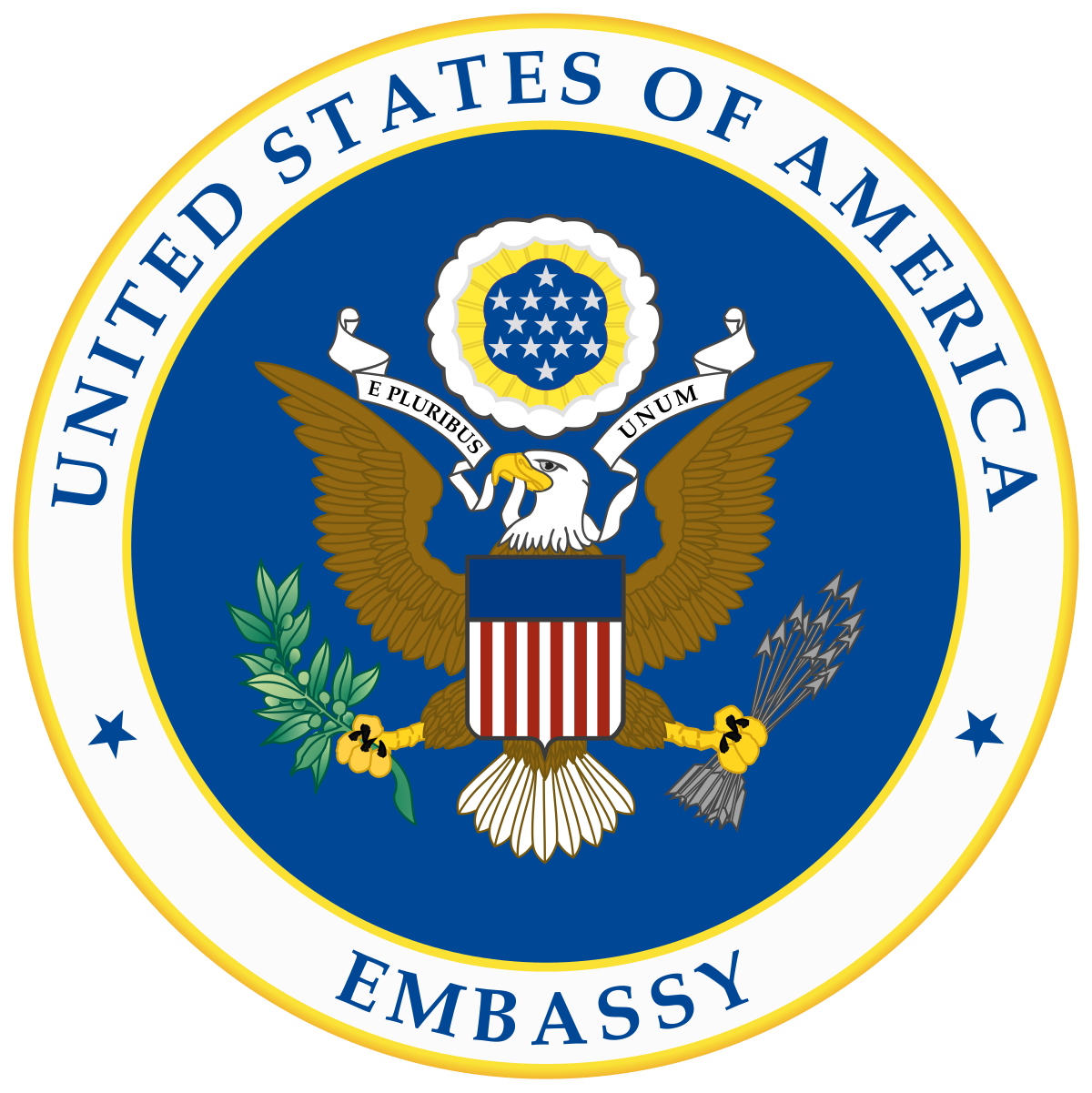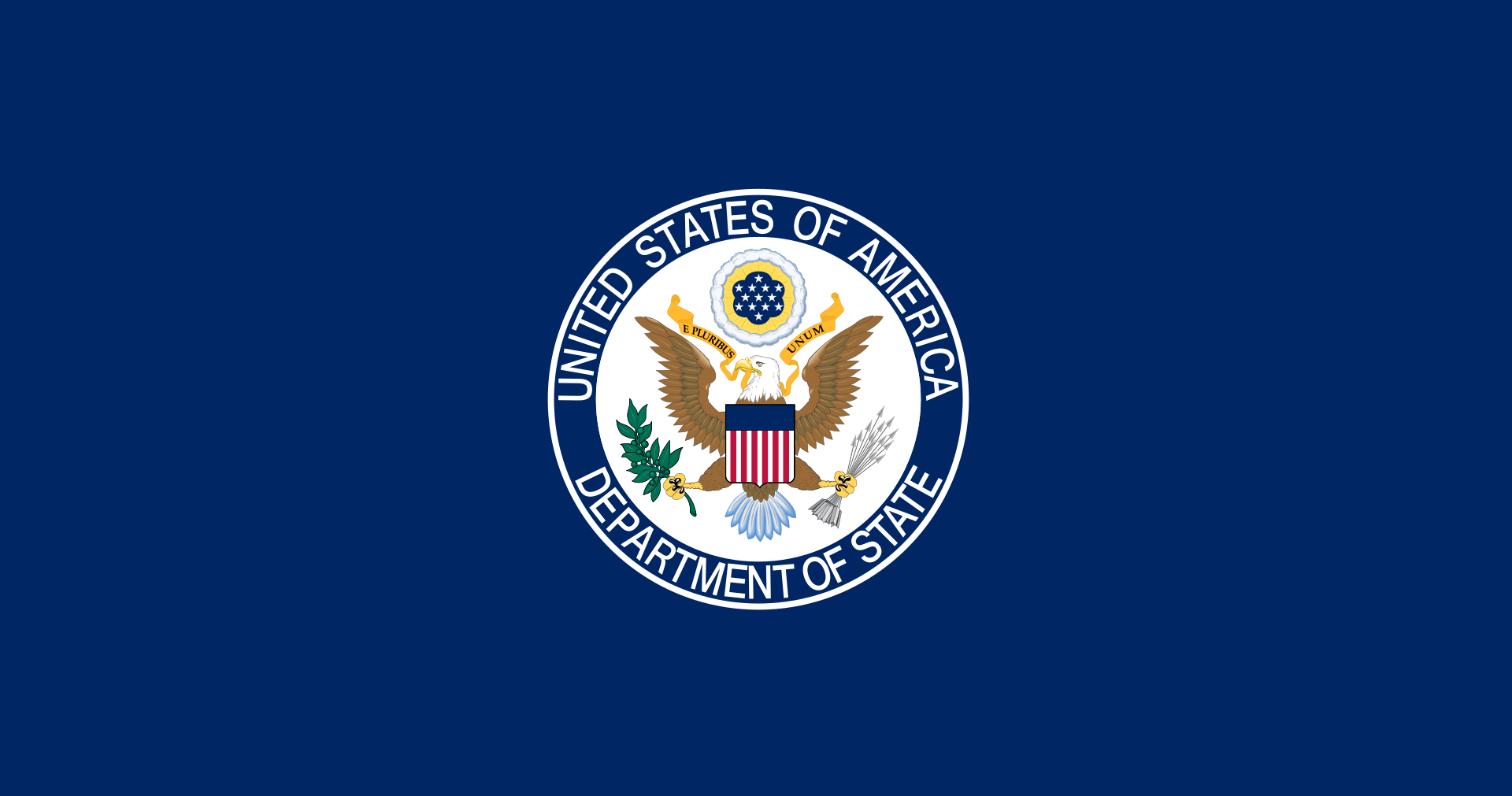- Jul 12, 2018
- 10,525

| 
| 
|
OFFICE OF THE UNITED STATES AMBASSADOR TO THE GLOBAL ASSEMBLY |
ENCRYPTED MESSAGE |
TO: David J. Knight, Presiding Judge of The International Court of Justice ( Global Assembly )
TO: James Pearce, Registrar of The International Court of Justice
FROM: Samuel Voto, United States Ambassador to The Global Assembly
Samuel Voto
United States Ambassador to The Global Assembly
Your Honor,
After consulting with my government, I have produced a response to the questions that have been presented to the International Court of Justice regarding the United States's Strategic Accountability policy. The following statement is co-authored by Silas Hawkins, the Attorney General of the United States, and I. If there are any questions regarding this statement, please feel free to reach out to my office directly.
---
Your Honor,
Below are the questions presented by the Thai government to the International Court of Justice in italics, followed by what we believe to be the proper answers to those questions that you should take under consideration:
1. Is it consistent with international law for a state to impose accountability on other states for the resale, transfer, or use of weapons or related technologies, irrespective of the original seller’s knowledge or intent?
ANSWER: A) The United States is not violating any statute of international law by upholding this policy.
B) Sovereign nations have the right to protect themselves and their allies from foreign attacks and invasion. Strategic Accountability is a deterrence to armed conflict and publicly clarifies American geopolitical policy.
C) The United States, and every country, has the right to defend themselves and their allies from foreign attack. While arming a state with weapons can, in certain circumstances, be seen as an aggressive action, this policy does not apply to small arms or manned vehicles. This policy specifically deals with weapons of mass destruction (WMDs) and their delivery systems, AKA strategic weapons.
While the use of all other kinds of weapons can be deadly, WMDs and strategic weapons are unique in that WMDs and their delivery systems (some versions of strategic weapons) are already totally banned. International law holds Global Assembly member states accountable for the construction, sale, and transfer of weapons of mass destruction and their delivery systems, in accordance the Resolution for Strategic Ordnance Prohibition (STOP) of 1995 (most specifically Article 4, but more broadly the entire binding resolution).
Also, the use of strategic weapons (in response to an enemy using them) generally requires an immediate and massive response. While a country arming enemies of the United States is obviously something that the government is against, the irresponsible proliferation of strategic weapons is seen as especially heinous because their use by rogue states would likely result in a global strategic war. That is why this policy of deterrence was created specifically and only for WMDs and strategic weapons.
2) Does a policy that holds a state accountable for the actions of another state in the resale or misuse of strategic weapons violate the principles of sovereignty and non-intervention under international law?
ANSWER: A) The answer to this question is, "No," because the Global Assembly and the International Court of Justice do not have a "principle of sovereignty" or "principle of non-intervention" outlined in the Charter of the Global Assembly, the Statute of The Court, or any binding resolution.
B) The Charter of The Global Assembly does specifically reference a "Principle of Sovereign Equality," in Chapter I, Article 2. Section 4 of that article does state that members, "shall refrain in their international relations from the threat or use of force against the territorial integrity or political independence of any state, or in any other manner inconsistent with the Purposes of the Global Assembly." Strategic Accountability does not violate the Principle of Sovereign Equality. Firstly, Strategic Accountability only states that offending parties will be, "held responsible." Secondly, even if the policy bluntly said (which it does not), "We will use strategic weapons as a consequence to the violation of this policy," it would still not violate the Principle of Sovereign Equality because such a guarantee would not be a threat against the "territorial integrity" or "political independence" of any state.
3) To what extent can a state be held responsible for the indirect actions of a third party under customary international law and existing international agreements on arms trade?
ANSWER: A) Under current international law, specifically the Strategic Ordinance Prohibition (STOP) binding resolution of 1995, member states cannot "develop, produce, stockpile or otherwise acquire or retain," biological or chemical weapons, or strategic weapons that act as specifically designed to act as delivery systems for those weapons. In accordance with the resolution, any party at any part of the process would be held liable in some way for either developing the weapons, producing them, stockpiling them, or at some point acquiring them.
4) Under international law, what is the threshold for attributing responsibility to a state for weapons it produces but does not directly use?
ANSWER: A) Specifically in regard to international law and the powers of the Global Assembly and the organs within it, this is answered in The Strategic Ordinance Prohibition binding resolution of 1995 which has already been covered in length as well as the Geneva Conventions.
B) The determination of responsibility in any matter between two sovereign states is up to them to resolve through the proper diplomatic channels.
Signed,
Silas Hawkins
Attorney General of The United States of America
Samuel Voto
United States Ambassador to The Global Assembly
---
Best regards,
After consulting with my government, I have produced a response to the questions that have been presented to the International Court of Justice regarding the United States's Strategic Accountability policy. The following statement is co-authored by Silas Hawkins, the Attorney General of the United States, and I. If there are any questions regarding this statement, please feel free to reach out to my office directly.
---
Your Honor,
Below are the questions presented by the Thai government to the International Court of Justice in italics, followed by what we believe to be the proper answers to those questions that you should take under consideration:
1. Is it consistent with international law for a state to impose accountability on other states for the resale, transfer, or use of weapons or related technologies, irrespective of the original seller’s knowledge or intent?
ANSWER: A) The United States is not violating any statute of international law by upholding this policy.
B) Sovereign nations have the right to protect themselves and their allies from foreign attacks and invasion. Strategic Accountability is a deterrence to armed conflict and publicly clarifies American geopolitical policy.
C) The United States, and every country, has the right to defend themselves and their allies from foreign attack. While arming a state with weapons can, in certain circumstances, be seen as an aggressive action, this policy does not apply to small arms or manned vehicles. This policy specifically deals with weapons of mass destruction (WMDs) and their delivery systems, AKA strategic weapons.
While the use of all other kinds of weapons can be deadly, WMDs and strategic weapons are unique in that WMDs and their delivery systems (some versions of strategic weapons) are already totally banned. International law holds Global Assembly member states accountable for the construction, sale, and transfer of weapons of mass destruction and their delivery systems, in accordance the Resolution for Strategic Ordnance Prohibition (STOP) of 1995 (most specifically Article 4, but more broadly the entire binding resolution).
Also, the use of strategic weapons (in response to an enemy using them) generally requires an immediate and massive response. While a country arming enemies of the United States is obviously something that the government is against, the irresponsible proliferation of strategic weapons is seen as especially heinous because their use by rogue states would likely result in a global strategic war. That is why this policy of deterrence was created specifically and only for WMDs and strategic weapons.
2) Does a policy that holds a state accountable for the actions of another state in the resale or misuse of strategic weapons violate the principles of sovereignty and non-intervention under international law?
ANSWER: A) The answer to this question is, "No," because the Global Assembly and the International Court of Justice do not have a "principle of sovereignty" or "principle of non-intervention" outlined in the Charter of the Global Assembly, the Statute of The Court, or any binding resolution.
B) The Charter of The Global Assembly does specifically reference a "Principle of Sovereign Equality," in Chapter I, Article 2. Section 4 of that article does state that members, "shall refrain in their international relations from the threat or use of force against the territorial integrity or political independence of any state, or in any other manner inconsistent with the Purposes of the Global Assembly." Strategic Accountability does not violate the Principle of Sovereign Equality. Firstly, Strategic Accountability only states that offending parties will be, "held responsible." Secondly, even if the policy bluntly said (which it does not), "We will use strategic weapons as a consequence to the violation of this policy," it would still not violate the Principle of Sovereign Equality because such a guarantee would not be a threat against the "territorial integrity" or "political independence" of any state.
3) To what extent can a state be held responsible for the indirect actions of a third party under customary international law and existing international agreements on arms trade?
ANSWER: A) Under current international law, specifically the Strategic Ordinance Prohibition (STOP) binding resolution of 1995, member states cannot "develop, produce, stockpile or otherwise acquire or retain," biological or chemical weapons, or strategic weapons that act as specifically designed to act as delivery systems for those weapons. In accordance with the resolution, any party at any part of the process would be held liable in some way for either developing the weapons, producing them, stockpiling them, or at some point acquiring them.
4) Under international law, what is the threshold for attributing responsibility to a state for weapons it produces but does not directly use?
ANSWER: A) Specifically in regard to international law and the powers of the Global Assembly and the organs within it, this is answered in The Strategic Ordinance Prohibition binding resolution of 1995 which has already been covered in length as well as the Geneva Conventions.
B) The determination of responsibility in any matter between two sovereign states is up to them to resolve through the proper diplomatic channels.
Signed,
Silas Hawkins
Attorney General of The United States of America
Samuel Voto
United States Ambassador to The Global Assembly
---
Best regards,
Samuel Voto
United States Ambassador to The Global Assembly


